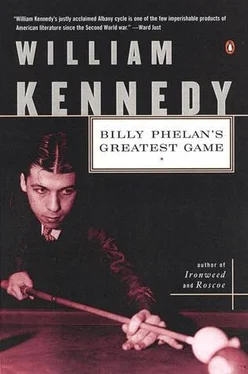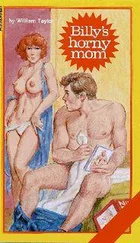“They picked Berman as go-between,” Patsy said.
During the morning, Morrie had sent word to Bindy through Lemon Lewis that a letter had been left for him at Nick Levine’s haberdashery. “We got Charlie Boy and we want you to negotiate,” it said. “If you agree to do this, go to State and Broadway at one o’clock today and buy a bag of peanuts at Coulson’s. Cross the street and sit on a bench in the Plaza facing Broadway and feed the pigeons for fifteen minutes.” The letter was signed “Nero” and also bore Charlie McCall’s signature.
Almost simultaneously Patsy received a letter in his mailbox at the main post office on Broadway, the third letter since the kidnapping. “We want the cash pronto and we are treating your boy nice but we can end that if you don’t get the cash pronto. We know all about you people and we don’t care about your kind so don’t be funny about this.” It was also signed “Nero” and countersigned by Charlie.
“You’re not surprised they picked Berman?” Martin said.
“Not a bit,” said Patsy. “I always thought the son of a bitch was in it.”
“But why suspect him out of everybody else?”
“It’s an Albany bunch did this, I’ll bet my tailbone on that and so will Bindy. They know too much about the whole scene. Berman’s always been tied in with the worst of the local hoodlums — Maloy, the Curry brothers, Mickey Fink, Joe the Polack. We know them all, and they’d need Morrie because he’s smarter than any of them.”
“Me, Patsy. What am I doing here?”
“Morrie’s playing cute. He says he really doesn’t want to do this thing but he will as a favor. He wants somebody there when they deliver Charlie, a witness who’ll take some of the weight off his story. He asked me to pick somebody and when I gave him four or five names, he picked yours. He thinks you’re straight.”
“What do I do?”
“Go with him. Do what he says and what they tell you to do. If he’s their man, you’re ours. And take care of Charlie when you get to him.”
“When does this happen?”
“Now. Morrie’s waiting for me up in the Washington Park lake house. Can you do it?”
“You’ll have to tell Mary something to put her mind at ease. And clue Emory in somehow.”
“Here’s a couple of hundred for lunch money. And put this in your pocket, too.” And Patsy handed Martin a snub-nosed thirty-eight with a fold of money.
“I wouldn’t want to use a gun.”
“It won’t hurt to take it.”
Patsy then drove north on Erie Boulevard to Erie Street and turned on it toward Broadway, past the car barns Edward Daugherty had written about. Scabs clung to the frame of a trolley as it rocketed through the gauntlet of stone throwers. Across Erie Street from the barns the old wooden Sacred Heart Church once stood, long gone now, Father Maguire on horseback with his whip, his church plagued by pigs and chickens. God be good to Charlie Boy, and all the sick and simple, and all the unhappy dead in Purgatory, and Mama and Papa.
Patsy drove up Broadway through North Albany and up Lawn Avenue to Wolfert’s Roost, where the tony Irish played golf. Martin took Peter there one day and the boy fired a hole in one on a par three and thought he’d learned the secret of the game. The car sped along Northern Boulevard, through a rush of memories now for Martin, who considered that on this day, or another very soon, he might be dead. All the history in his head would disappear, the way his father’s history was fading into whiteness.
Patsy drove over Northern Boulevard and into Washington Park, past the statues of Robert Burns and Moses, and up to the gingerbread yellow-brick lake house. Patsy parked and Martin got out of the car and stared at a stunning sight: a maple tree shedding its yellow leaves in a steady, floating rain. The leaves fell softly and brilliantly into a perfect yellow circle, hundreds of them constantly in the air, an act of miraculous shedding of the past while it was still golden. The tree was ancient, maybe as old as the park, or older. Martin had walked through the park with his father an age ago. Young people with sleds rolled in the snow and embraced and kissed behind bushes glittering with icy lace. Young people rode together in the summer in open carriages. They held hands and walked around the spectacular Moses fountain. Martin’s father stood at the edge of these visions, watching. This is no country for old men, his father said. I prefer, said Edward Daugherty, to be with the poet, a golden bird on a golden bough, singing of what is past.
The land was a cemetery before it was a park. To prepare the park, men dug up the old bones and carted them to new cemeteries north of the city.
“Come on, let’s move,” Patsy said to Martin.
Martin touched the pistol in his pocket and took a final look at the yellow rain of leaves, a sunburst of golden symmetry. On a day such as this, God rescued Isaac from his father’s faith.
Morrie Berman, looking sharp in a gray fedora and blue pinstripe suit, sat alone on a bench inside the desolate lake house, legs spread, elbows on knees, blowing smoke rings at the tile floor. He stood up and stepped on his cigarette when Patsy came through the door. Patsy shook his hand and said, “I brought our friend.” Then Martin too shook Morrie’s hand, enriching with a quantum leap his comprehension of duplicity.
“They just said a heavy no to the twenty,” Morrie told Patsy. “I got the message just before I came up here.”
“What else did they say?”
“They think you’re trying to chisel them. They called you a muzzler and said they want at least seventy-five.”
“I got everything here the family can scrape together,” Patsy said, tapping the black leatherette suitcase he carried in his left hand. “Matt just came back from New York with the last five and now there’s forty here. And that’s all there is, Morrie, that’s all there is. I don’t even have enough left for a shave. Morrie, you know we wouldn’t chisel on Charlie’s life. You got to make them know that.”
“I’ll do my level best, Patsy.”
“I know you will, Morrie. You’re one in a thousand to do this for us.”
Patsy handed Morrie the suitcase. “Count it, make sure.”
Morrie opened the suitcase and riffled swiftly, without counting, through the wrapped tens and twenties, then closed it.
“What about their letters?”
Patsy took a white envelope from his inside pocket and handed it to Morrie.
“One more thing. How do I account for all this cash if I get stopped?”
Pat took the envelope back from Morrie and wrote on it: “To whom it may concern. Morris Berman is carrying this money on a business errand for me. To confirm this, call me collect at one of these telephones.” And he wrote the numbers of his home and his camp in the Helderberg Mountains, and then signed it. Patrick Joseph McCall.
“Is there anything special I need to know?” Martin asked.
“Morrie will tell you everything,” Patsy said. “Just do what needs doing.”
“They didn’t like it you were a newspaperman,” Morrie said, “but I convinced them you were okay.”
“Do we need my car?” Martin asked.
“We drive mine,” said Morrie.
“You tell them we want that boy back safe,” Patsy said.
Morrie smiled and Patsy embraced him.
“They’ll know if I’m followed,” Morrie said.
“You won’t be followed.”
And then the three men went out of the lake house, one behind the other. Indian file. The truculent Mohawks once walked this same patch of earth. The Mohawks were so feared that one brave could strike terror into a dozen from another tribe. When the six tribes met to talk of land on Long Island ceded to the white man in exchange for guns and wampum, the lone Mohawk delegate asked whose decision it had been to cede the land. The Long Island chief said it was his. The Mohawk then stood up from his place in the tribal circle, scalped the chief, and left the meeting, a gesture which called the validity of the land transaction into some question.
Читать дальше












